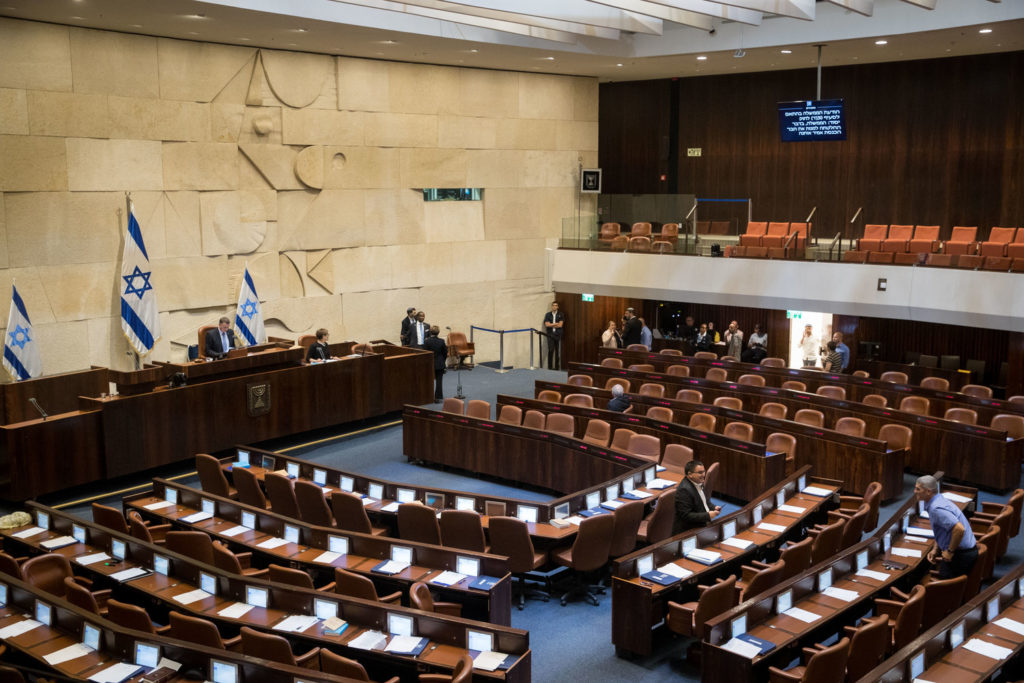FRESH AIR
Intra-Likud spat delays launch of new Israeli government
May 15, 2020 | Ahron Shapiro

The swearing-in of Israel’s 35th government, which had been planned for last night, was delayed until at least Sunday after dissension erupted within the Likud over allocation of its ministerial portfolios for the impending national emergency government.
Under the terms of the framework agreement signed by Likud leader Binyamin Netanyahu and Blue and White leader Benny Gantz on April 20 and subsequently modified after input from Israel’s High Court, Netanyahu will serve for the first 18 months of the Government, Gantz for the next 18, and then the two will alternate again for six months apiece until Israel’s next scheduled elections in four years’ time.
The kerfuffle within the Likud over ministries is not so much over the lack of available jobs – indeed the government is slated to have a record 36 ministers and the vast majority of the 18 ministries available to the Likud-led bloc under the agreement will go to Likud MKs. Rather, Netanyahu’s picks were seen by some analysts as a rearrangement of the power structure within the party to favour certain loyalists while sidelining other long-serving ministers.
The Gantz-Netanyahu agreement also stipulated that the national emergency government would last only six months, after which it would be reconstituted as a national unity government, whose basic guidelines would be subject to further negotiation.
On May 13, as part of the final preparations for the ceremonial transfer of power, the national emergency government’s own basic guidelines were released. The guidelines, which are broadly centrist, include a focus on the coronavirus pandemic response, but notably omit any reference to the issue of extending sovereignty to Israel’s West Bank settlements as well as the Jordan Valley, which Netanyahu has promised to advance as early as July.
The right-wing party Yemina, led by outgoing Defence Minister Naftali Bennett, announced earlier this week that it would join the Opposition rather than join a government in which it would “lack influence” and slammed the new guidelines for effectively abandoning right-wing principles to placate the coalition’s left-wing.
However, Rafi Peretz, of the Jewish Home faction of Yemina, parted ways with his colleagues and decided to enter the government, accepting Netanyahu’s offer to head a new ministry for “Jerusalem and Heritage”.
With the inclusion of Peretz, the Gantz-Netanyahu government coalition will be supported by a majority of 73 MKs in the 120-member Knesset: The Likud (36 seats); Blue and White (15); Shas (9); United Torah Judaism (7); Derech Eretz (2); Gesher (1); Jewish Home (1); and two of the Labor party’s three MKs.
Tags: Israel
RELATED ARTICLES

US Middle East strategy amid regional instability: Dana Stroul at the Sydney Institute

Antisemitism in Australia after the Bondi Massacre: Arsen Ostrovsky at the Sydney Institute





















